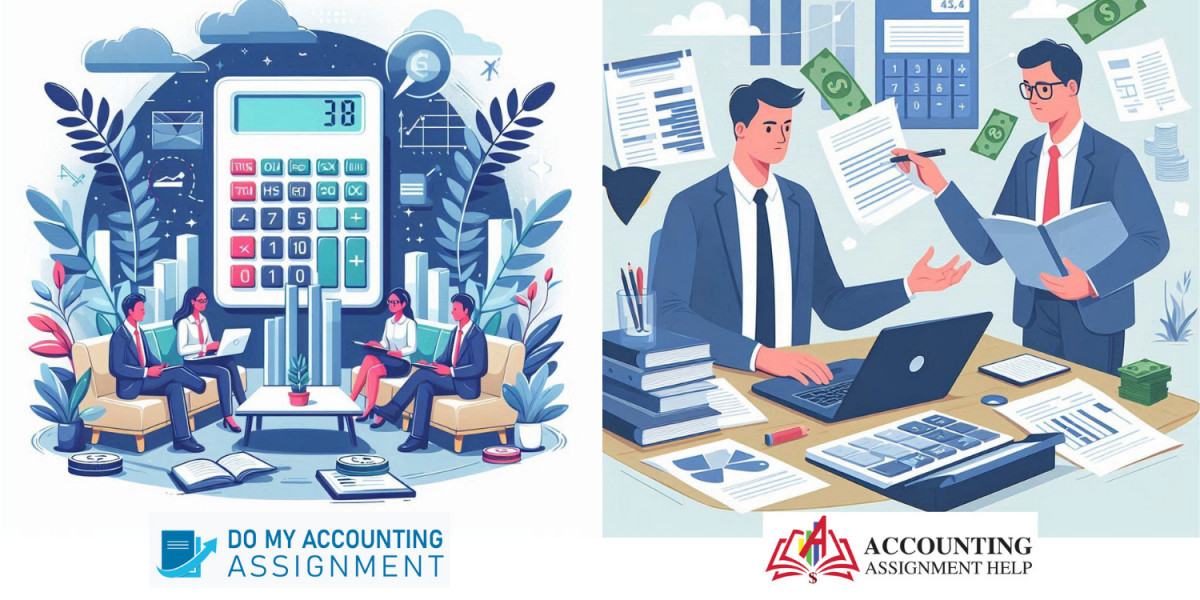The American Accounting Association (AAA) has long been a cornerstone for accounting professionals, academics, and students, providing a platform for knowledge sharing, networking, and professional development. The 2024 AAA Annual Meeting, held in the vibrant city of San Francisco, was no exception. This year's event, themed "Innovations in Accounting Education," highlighted the evolving landscape of accounting education and the critical role it plays in preparing the next generation of accountants.
Innovations in Accounting Education
One of the most anticipated aspects of the 2024 AAA Annual Meeting was the focus on innovative approaches to accounting education. With rapid advancements in technology and changes in regulatory environments, traditional methods of teaching accounting are becoming increasingly inadequate. The meeting showcased several innovative educational practices designed to equip students with the skills necessary to thrive in a dynamic and complex global marketplace.
Technological Integration in Accounting Curriculum
Technology has undeniably transformed the accounting profession. The integration of big data analytics, artificial intelligence (AI), and blockchain technology into accounting practices necessitates a corresponding evolution in accounting education. During the meeting, various sessions and workshops emphasized the importance of incorporating these technological tools into the accounting curriculum.
Professors from leading universities presented case studies on how they have successfully integrated software such as Excel, QuickBooks, and more advanced tools like SAP and Oracle into their coursework. The use of data analytics platforms was particularly highlighted, with educators demonstrating how these tools can be used to teach students about data-driven decision-making, fraud detection, and financial forecasting.
Additionally, the AAA meeting underscored the necessity of teaching students about cybersecurity risks and the importance of safeguarding financial data. With cyber threats becoming more sophisticated, future accountants must be well-versed in cybersecurity measures to protect sensitive information.
Experiential Learning and Real-World Applications
Another significant theme at the meeting was the emphasis on experiential learning. Traditional lecture-based teaching methods are being supplemented or even replaced by hands-on learning experiences that better prepare students for real-world challenges. Attendees heard from educators who have implemented internships, co-op programs, and project-based learning into their accounting programs.
For example, a session led by a group of professors from the Midwest highlighted a collaborative project where students worked with local businesses to solve real accounting problems. This not only provided students with practical experience but also benefited the local business community. Such initiatives demonstrate the value of experiential learning in bridging the gap between theoretical knowledge and practical application.
Online Learning and Hybrid Models
The COVID-19 pandemic accelerated the adoption of online learning and hybrid educational models. The 2024 AAA Annual Meeting reflected on the lessons learned during the pandemic and how these insights can be applied to improve accounting education moving forward. Sessions on online pedagogy explored best practices for engaging students in a virtual environment, assessing learning outcomes remotely, and maintaining academic integrity in an online setting.
Educators shared their experiences with various online platforms and tools that facilitate interactive and engaging learning experiences. They also discussed the challenges of remote learning, such as student isolation and the digital divide, and proposed solutions to address these issues.
Research and Publications
Research is a cornerstone of the AAA Annual Meeting, and this year was no different. The conference featured numerous presentations of cutting-edge research in accounting, with a particular focus on educational methodologies. Attendees had the opportunity to engage with researchers and discuss findings that have the potential to shape the future of accounting education.
Key Research Presentations
One notable presentation explored the impact of gamification on student engagement and learning outcomes in accounting courses. The study found that incorporating game-like elements into the curriculum can significantly enhance student motivation and performance. This research has practical implications for educators seeking to make accounting courses more engaging and effective.
Another significant research topic was the effectiveness of flipped classrooms in accounting education. Presenters shared evidence that students in flipped classrooms—where they review lecture material at home and engage in interactive activities in class—tend to have higher retention rates and better understanding of complex concepts compared to those in traditional lecture settings.
Networking and Professional Development
The AAA Annual Meeting is not only about education and research; it is also a vital networking opportunity for accounting professionals. Attendees had numerous opportunities to connect with peers, share experiences, and build professional relationships.
Networking Events
The meeting featured a variety of networking events, including receptions, luncheons, and special interest group meetings. These events provided a relaxed environment for attendees to discuss common challenges, share best practices, and explore potential collaborations.
One of the highlights was the "Meet the Editors" session, where attendees could interact with editors from leading accounting journals. This was a unique opportunity for researchers and educators to gain insights into the publication process and get advice on how to improve their chances of getting published.
Professional Development Workshops
In addition to networking opportunities, the AAA meeting offered numerous professional development workshops. These workshops covered a range of topics, from enhancing teaching skills to staying current with the latest accounting standards and regulations.
For instance, a popular workshop focused on developing effective communication skills for accounting professionals. As accounting roles increasingly involve presenting complex financial information to non-experts, the ability to communicate clearly and concisely is more important than ever. The workshop provided practical tips and techniques for improving both written and verbal communication skills.
Diversity, Equity, and Inclusion
The 2024 AAA Annual Meeting placed a strong emphasis on diversity, equity, and inclusion (DEI) in accounting education and the profession as a whole. Several sessions addressed the challenges and opportunities related to promoting DEI within academic institutions and accounting firms.
Addressing DEI in Accounting Education
A panel discussion featuring leaders from academia and industry explored strategies for creating more inclusive accounting programs. The panelists discussed the importance of recruiting and retaining diverse faculty and students, as well as creating an inclusive curriculum that reflects diverse perspectives and experiences.
One innovative approach highlighted was the implementation of mentorship programs aimed at supporting underrepresented students in accounting. These programs pair students with mentors who can provide guidance, support, and networking opportunities, helping to create a more inclusive and supportive learning environment.
DEI in the Accounting Profession
In addition to educational initiatives, the meeting also addressed DEI within the accounting profession. Sessions focused on the importance of fostering an inclusive workplace culture and implementing policies that promote diversity at all levels of an organization. Attendees heard from leaders who have successfully implemented DEI initiatives in their firms, providing valuable insights and practical advice.
The Role of Accreditation and Standards
Accreditation and standards play a crucial role in ensuring the quality and consistency of accounting education. The 2024 AAA Annual Meeting featured several sessions dedicated to discussing the current state of accreditation and exploring potential changes to accounting education standards.
Updates from Accreditation Bodies
Representatives from major accreditation bodies, such as the Association to Advance Collegiate Schools of Business (AACSB) and the Accreditation Council for Business Schools and Programs (ACBSP), provided updates on recent developments and upcoming changes to accreditation standards. These updates are critical for educators and administrators to ensure their programs remain in compliance and continue to meet the highest standards of quality.
The Future of Accounting Standards
In addition to accreditation, the meeting also addressed the future of accounting standards. With the rapid pace of change in the accounting profession, it is essential for educational programs to stay current with the latest standards and regulations. Sessions covered recent updates to Generally Accepted Accounting Principles (GAAP) and International Financial Reporting Standards (IFRS), as well as emerging issues such as sustainability reporting and environmental, social, and governance (ESG) criteria.
Student Engagement and Success
Ensuring student engagement and success is a primary goal of accounting education. The 2024 AAA Annual Meeting featured several sessions focused on strategies for enhancing student engagement and improving learning outcomes.
Enhancing Student Engagement
One session explored the use of interactive and collaborative learning techniques to increase student engagement. Educators shared their experiences with using tools such as polling software, discussion boards, and group projects to create a more interactive and engaging learning environment. These techniques can help students feel more connected to the material and to their peers, leading to better learning outcomes.
Supporting Student Success
Supporting student success goes beyond engagement in the classroom. Sessions also addressed the importance of providing students with the resources and support they need to succeed academically and professionally. This includes academic advising, career services, and mental health support.
A notable presentation discussed the implementation of a comprehensive support system for accounting students at a large university. This system includes academic tutoring, career counseling, and wellness resources, all designed to help students navigate the challenges of their academic and professional journeys.
Conclusion
The 2024 American Accounting Association Annual Meeting was a testament to the dynamic and evolving nature of accounting education. From the integration of technology and experiential learning to the emphasis on diversity, equity, and inclusion, the meeting highlighted the many ways in which accounting educators are innovating to prepare students for the future.
As we look ahead, it is clear that the accounting profession will continue to change, driven by technological advancements and evolving societal expectations. Accounting educators must remain adaptable, continuously updating their curricula and teaching methods to ensure that students are well-prepared for these changes. For students and professionals seeking to excel in this dynamic environment, finding an Accounting Assignment Doer who can assist with complex coursework and provide insights into the latest industry trends can be invaluable. By leveraging the resources and knowledge shared at events like the AAA Annual Meeting, the accounting education community can continue to advance and thrive in the years to come.






